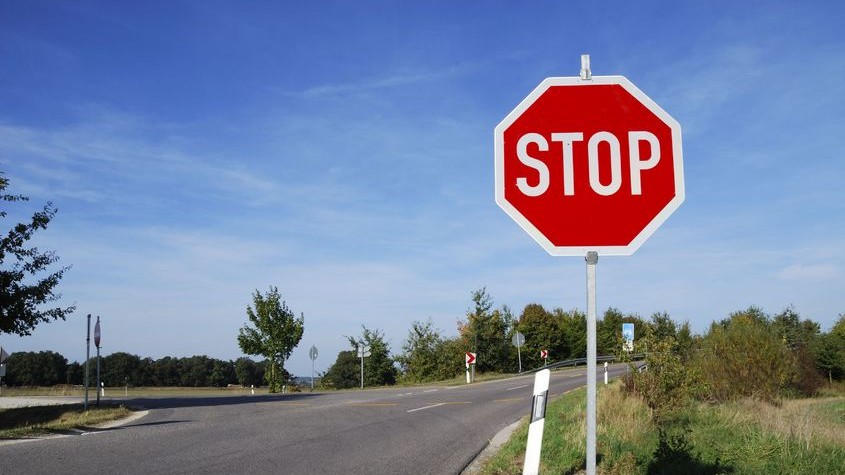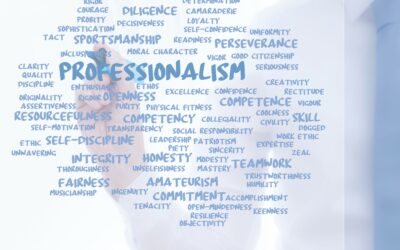Margie Warrell is a Forbes Columnist, best-selling author, popular keynote speaker, media commentator and internationally recognized thought leader in human potential. Her latest book, Stop Playing Safe: Rethink Risk, Unlock the Power of Courage, and Achieve Outstanding Success, helps the reader identify how their risk aversion is holding them back from the kind of success that is within their reach.
Margie was gracious enough to sit down for a lengthy Q&A with Giant Leap Consulting. As a courage-building company, we strive to bring you the resources we know can have a positive impact on your life and career. Margie’s work is an excellent resource that we are very happy to share with you.
Giant Leap Consulting (GLC): Stop Playing Safe builds upon, but goes farther than, your first book, Find Your Courage. What took place between the writing of the two books that inspired you to write Stop Playing Safe?
Warrell: Lots! After writing Find Your Courage, I began working more and more with high achieving people in demanding roles in competitive and pressure laden workplaces. As successful as many of them were, many wanted to feel a greater sense of purpose in their work every day and struggled to over come fear and self-doubt in how they went about it.
While Find Your Courage provided a foundation for understanding where fear can hold us back in our lives over all, it wasn’t focused on fear in the workplace and how it can sabotage our professional success. Nor did it address some of the more complex challenges that people face as they try to navigate a career path forward, and try to build their influence and ‘brand’ in organizations where their was a culture of fear, and playing safe often seemed like the smartest thing to do in order to survive.
Of course the global financial crisis of 2008 only fueled fear in many organizations, giving many the excuse they wanted to hunker down, stay silent, play safe and hope for the best.
Yet, as I wrote in Stop Playing Safe, while there’s no doubt that we are living in turbulent times, and the economic landscape has changed, it’s those who are willing to challenge status quo thinking, speak up, embrace change and look for the opportunity with it who will differentiate themselves and enjoy more fulfillment in their working lives.
GLC: Given the dangers of our times, it makes sense that people play it safe. But too much safety can be a dangerous thing, right? How can a person know whether they are being smartly safe, versus dangerously safe?
Warrell: Obviously I’m preaching to the choir when I say to you that playing safe can be a very high risk strategy in our career, business and personal lives. The reality is that we have to take risks throughout the course of our lives if we want to achieve the goals that inspire us and really accomplish what we are capable of doing.
Of course there’s a distinct difference between courageous risk taking and reckless risk taking. We have to do our homework, research the options and be honest in assessing the possible consequences. Great questions to ask are:
- Where am I over-stating (catastrophizin’ and over dramatizing) the risks of what might happen in ways only fuel my fear of action?
- What’s the worst thing that could happen if I try this and it doesn’t work out? How likely is that to happen if I prepare in advance, and proceed with a plan?
- How will it cost me if I choose to do nothing? What’s the default path I will end up on if I don’t make this change or take this chance?
- Where am I at risk of looking back and regretting not having been more decisive, and courageous?
GLC: The story about your brother was very personal, and very affecting. Please share some of that story with our readers.
Warrell: I come from a big close family of seven kids. I’m the second and have an older brother Frank. Four years ago Frank was doing what he has enjoyed doing many times over the years- going out with his buddies riding motor bikes. On this occasion he was riding his bike over the sand dunes outside Doha, the capital city of Qatar, in the Arabian gulf where he was working as an engineer at the time. Unfortunately the particular sand dune Frank rode up didn’t slope down the other side but ended with a sheer cliff.
So when Frank reached the top instead of riding down the other side he was flying through the air, 25 feet above rock below. He shared later that in the few seconds he was airborn he wondered if they would be his last. He was an engineer after all and knew his situation was precarious to say the least.
On landing, he lay there and realized he was still alive. He then proceeded to move his head, then his hands and arms to diagnose his injuries. When he got to his legs he could feel nothing. Within a few moments he realized that it was possible he had injured his spinal chord.
Unfortunately he had. In that moment of impact he had severed his spinal chord at T12 and became a paraplegic.
I flew down to Doha as soon as I could, farming out logistics for my four children’s activities to friends as best I could. I spent two weeks with Frank in the rehab hospital in Doha before he was stabilized enough to be flown back to Australia for his full rehabilitation. I recall vividly sitting beside his bed and share the story in my book. But in short it was a profound lesson in the power of reframing as Frank committed to not spend the rest of his life focused on what he could no longer do (which was a lot) but to focus on what he could. He has since learnt how to snow ski, water ski, play tennis and takes an annual trip to Bali to go scuba diving.
It goes without saying that I’m very proud of Frank and that his resilience in the face of adversity inspires me every day. It’s a powerful lesson for everyone – to focus on what you can do, not on what you can’t.
What I didn’t share in the book is that two years after Franks accident my youngest brother Peter took his life after a long battle with schizophrenia. That story will be part of my next book, but I mention it because losing Peter taught me that sometimes life doesn’t go to plan, that it can be unfair, and that sometimes our best efforts aren’t enough, but that to live truly meaningful lives we have to continually give it our best effort anyway.
GLC: What would be your greatest hope for this book and its messages?
Warrell: It’s my passionate belief that every person has the ability to make a really meaningful contribution through the work they do. I hope that Stop Playing Safe helps those who read it connect to a deeper sense of purpose, and to find the courage to fulfill their highest potential in the world, engaging in bigger conversations, challenging their beliefs about what is possible for them and refusing to buy into the fears and self doubt that drive so man too many to settle, sell out on themselves and who they have it within them to become.
Our special thanks to Margie who took time out of a hectic schedule to talk with us about Stop Playing Safe.
Connect to Margie on Twitter, Facebook, or through the Stop Playing Safe website.
Disclosure of Material Connection: Giant Leap Consulting has not been paid to endorse this book. We read it, and thought our readers would also value it. We are disclosing this in accordance with the Federal trade Commission’s 16 CFR, Part 255:”Guides Concerning the Use of Endorsements and Testimonials in Advertising.”



